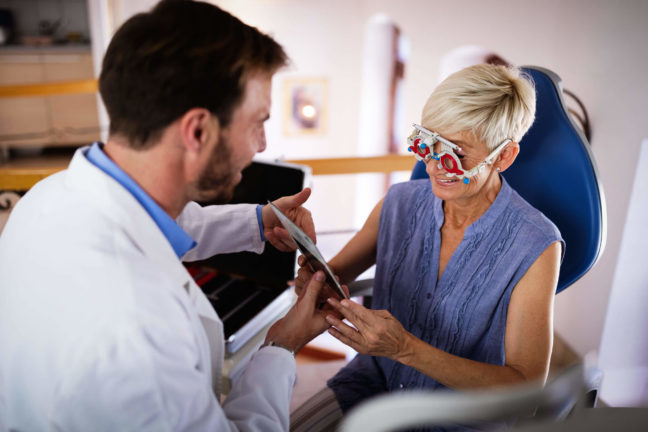The early stages of aging are most noticeable on the surface of the skin as fine lines and wrinkles first appear. Over time there are more factors that may come into play, like memory and vision decline, and social isolation, which can lead to anxiety or depression. It’s important that adults ages 50 and older are aware of beneficial healthy aging practices so they can age more gracefully and remain both physically and mentally strong.
Those who practice good health habits when they are younger tend to remain healthier as they age, but it’s never too late to begin leading a healthier lifestyle. According to the Mayo Clinic, less than 3% of Americans meet the basic qualifications for a “healthy lifestyle,” which includes eating a healthy diet, being active, maintaining a healthy body fat percentage, and being a nonsmoker. However, studies have shown those who begin practicing said qualifications for a healthier lifestyle enjoy a 40% reduction in the risk of death from any cause and a 35% lower chance of having a cardiovascular episode, like a heart attack or stroke.
Good health habits can make a big difference even to older adults who may not have made their health a priority in the past. Consider adding these 3 tips to your routine for keeping up with good health as you age:
- Challenge Your Mental Health
Managing mental health for older adults is just as important as managing it at any other stage in life. As you age it’s common to see a decline in memory or mood due to many contributing factors. However, it’s possible to push off the decline in mental health that some older adults face.
As you age, it’s important you continue to challenge your mental health by:
- playing sudoku, mahjong, or cards
- trying new hobbies like, tai chi, qi gong, yoga, or pilates
- staying up-to-date with current events through the internet or apps
Activities like these have the ability to stimulate the mind and connect people with the world around them, which improves memory and overall mental health.

- Screen For Vision Changes
Older adults who wear eyeglasses should have their prescription checked every year for changes and have their eyes tested for any developing issues. Adults ages 40 and older are at a greater risk of developing presbyopia, which is a refractive error that makes it hard for older adults to see things up close. Eyeglasses are the simplest and safest known way to correct a refractive error, like presbyopia.
Therefore, you should purchase new eyeglasses with the correct prescription lenses as often as recommended by your eye doctor. New eyeglasses can provide older adults with the clearest possible vision as they age, help reduce their chance of falling, and provide better clarity when they are driving or engaging in activities, like reading.
If you don’t wear eyeglasses or have any vision problems, doctors recommend getting a regular eye exam based on your age:
- Ages 30-54: Every 2-4 years
- Ages 55-64: Every 1-3 years
- Ages 65 and Up: Every 1-2 years
The best chance you have to protect your vision is to detect any new or worsening issues early on with regular eye exams.
- Keep in Touch
Staying in touch with loved ones and close friends is a great way to keep older adults feeling connected and happy. Oftentimes, later in life it becomes easier to lose contact with some family members or friends due to busy schedules or moving to different locations, which can make older adults feel isolated.
Regular socialization can also increase mental health, therefore, it’s strongly encouraged that older adults find a way to keep in contact with loved ones, through phone calls, letters, and online. Today, they can even keep in contact with distant relatives by using smart video calling services, which allow them to chat face-to-face, strengthening their connection even more. However, in-person trips are the most effective form of communication between loved ones. Engaging in fun activities with one another, like a family vacation or hot air ballooning, can create a lasting bond, fond memories, and contribute to mental health as well.
There are plenty of aspects that contribute to healthy aging and it’s never too late to start adopting them into your routine. Start practicing healthy habits today to ensure a healthier future.


